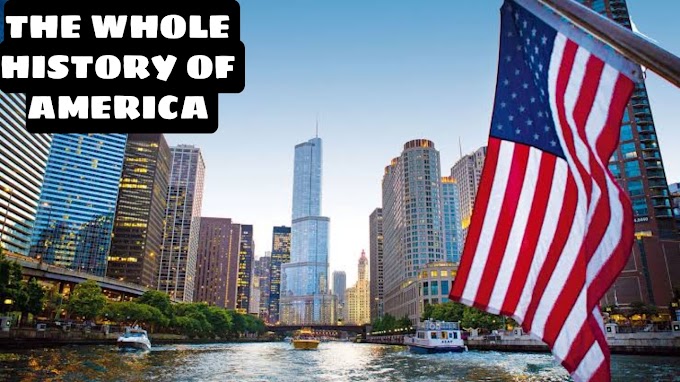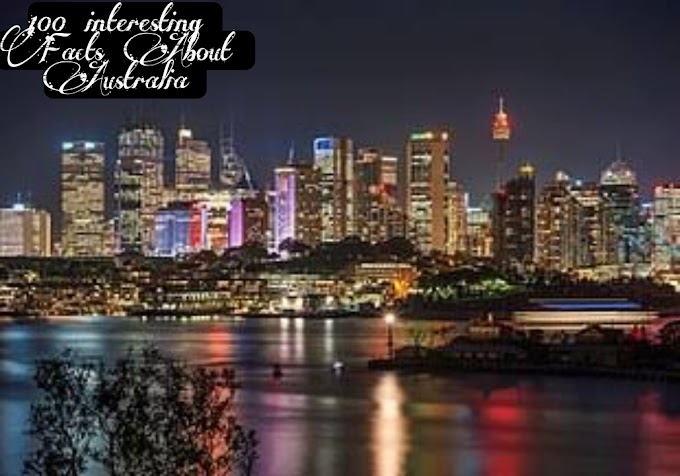Top 10 Interesting Facts About Bolivia
Hello Guys:
Welcome to Countries Facts we're back on the road again, crossing the exotic lands of South America for a stop off in Bolivia to see exactly why over one million people visit these exotic lands every year! So, fry up your salchipapa and grab a glass of mocochinchi as we explore this multi-ethnic and diversified country with these ten amazing facts about Bolivia Before we get started, help us out by hitting that like button, and be sure to leave us a comment because we're always looking to engage in interesting conversations with you! Also, don't forget to click the bell so you get notified every time we put out a new video!
1 Cuisine of Bolivia Vegetarians and pet owners look away now – Bolivia’s specialty dish is... guinea pig! Guinea pig, or cuy, has been a traditional part of the Bolivian diet for many years as it is a major source of protein and is also considerably easy to raise. If you don’t have the stomach for guinea pig, other dishes on the menu include salteña, an empanada-style pastry filled with beef, pork or chicken, or Silpancho, a super filling dish consisting of rice, potato, meat, egg, vegetables and herbs. Feeling a little parched? Try a traditional licuado, a water or milk-based beverage blended with your choice of fruit.
2 World records When it comes to setting world records, Bolivians are all about size. The largest charango - which is a South American guitar - was created in 2004 measuring 20-feet or 6.1-meters long, and the largest morenada dance, or Bolivian folk dance, was achieved in 2014 involving an incredible 3014 people. Bolivia also boasts three of the largest musical ensembles – 2,317 panpipes in 2004, 1,166 trumpets in 2006, and 1,157 charangos in 2009.
3 Famous Bolivians Bolivia boasts many well-known faces, and you may recognize actresses Carla Ortiz, Tanya Callau and Ximena Herrera from such movies as Forgotten and The Princess Diaries 2. Bolivian football stars include Gilbert Ãlvarez and Carlos Saucedo, who have both played for their national team. Maria Fernanda Ãlvarez is also a recognizable Bolivian known for her tennis prowess and you may even recognize Claudia Balderrama, who competed at the 2012 summer Olympics as a race-walker. Bolivia is also the birthplace of several internet stars, including amazing YouTubers Elias Ayaviri, Favio Apaza-MansOn, and VicenticoTD, and Blogger Andrea Roman. Inventions include the Tiki-Taka - or click-clackers - a toy to both entertain and test your balance and skill; Coca Lorini, a syrup-type elixir that predates and paved the way for Coca-Cola, and Nit Occlud, a medical device for treating infant heart problems.
4 Stunning Sights Bolivia’s most stunning sight is the Salar de Uyuni, a salt flat that surpasses any other. At over 4,000 sq-miles (10,000 square km), it is the largest salt flat in the world and measures roughly the size of Jamaica. Travelers have been known to spend days exploring this giant mirror-like wonder. Visitors also tend to flock to Lake Titicaca, South America’s largest lake by volume. Straddling the border with Peru, Titicaca measures up at 3,232 sq-miles (8,372 square-km) and is considered by many locals to be sacred.
5 Sacred Lake Titicaca Sacred Lake Titicaca has incredible origins and is said to be the birthplace of the region’s ancient civilization. The Inca myth states that the god Con Tiqui Viracocha, emerged from Titicaca, bringing with him a small group of humans. Under his orders, the sun, moon, and the stars rose into the sky, creating the universe which he populated with people created from stone. As the human populace was brought to life, Viracocha commanded them to populate the world, creating the ancient civilizations that predate the modern world. According to the Incas, after death, their spirit will return to Lake Titicaca for eternity.
6 Sports of Bolivia As is the case with most South American nations, Bolivians are huge football fans, and the sport has an almost religious following. Club BolÃvar is the most successful team in Bolivia and is currently at the top of the league. It’s also the only Bolivian team to reach the semi-finals of the Copa Libertadores tournament, the major South American club tournament. Bolivia’s love of football is so strong that they bring that love indoors with a version of the sport called Futsal, or futsala, which can be played on a basketball court and uses smaller goals and balls and teams of only 5.
7 Bolivians and Nature As of 2001, though 78% of Bolivia's population identifies as Roman Catholic, the nation's traditions are more deeply rooted in their respect for nature rather than the religion they follow. Pacha Mama, or Mother Earth, is still worshiped by many who offer sacrifices of llama to bring good luck and fortune. Bolivian’s have so much respect for nature in fact, that in 2010 the government passed the Law of the Rights of Mother Earth, which grants nature the right to pure water, clean air, and to live free of contamination.
8 Bolivia festivals Bolivians enjoy many fun-filled fiestas throughout the year, starting with the Alasitas Fair in January. The month-long festival is dedicated to giving gifts to Ekeko, the god of abundance. One quirky festival that sounds less enjoyable than most is Tinku. Loosely translating to “violent encounter,brutal ritualistic combat erupts in the hill-towns of Bolivia once a year. Using fists and stones, participants supposedly fight to honor Pacha Mama, but nowadays it’s more to prove bravery. Warfare is so vicious that deaths are reported each year, meaning you’ll want to avoid the Bolivian highlands during early May if you plan to vacation there.
9 Bolivia's Battle for Independence Bolivia independence was hard fought for against the Spanish and 16 years of bloody wars were endured so that Bolivia could have the right to govern itself. Before becoming its own nation, Bolivia was part of the Spanish RÃo de la Plata viceroyalty. After failed revolutions in Sucre and La Paz in 1809, Spanish authorities continued to reign. But, as the Spanish American wars of Independence raged across the continent, Bolivians continued to fight for their freedom under the campaign of Simón BolÃvar. Support came from the north via BolÃvar’s friend and fellow Venezuelan Antonio José de Sucre, for whom the capital is now named. Independence was finally declared on August 6th, 1825, and Bolivians celebrate each year with parades and fireworks.
10 The Naming of “Bolivia Born in 1783 to a wealthy Creole family in Venezuela, Simón BolÃvar was a military and political leader who played an integral part in the independence of Venezuela, Bolivia, Ecuador, Peru and Colombia. Upon its independence, the country was granted the right to a name of its own. Initially, the Republic of Bolivar stuck until congressman Manuel MartÃn Cruz declared that “if from Romulus comes Rome, then from BolÃvar comes Bolivia The new name was made official in 1825, but was changed to “Plurinational State of Bolivia in 2009, to recognize the diversity and multiple ethnicities spread throughout. Thanks for watching!
If you enjoyed this Article then give it a like, and leave a comment. Remember to click the Subscribe bell to be notified automatically about our next new Article we will see you soon in the next Article God Bless you.
















